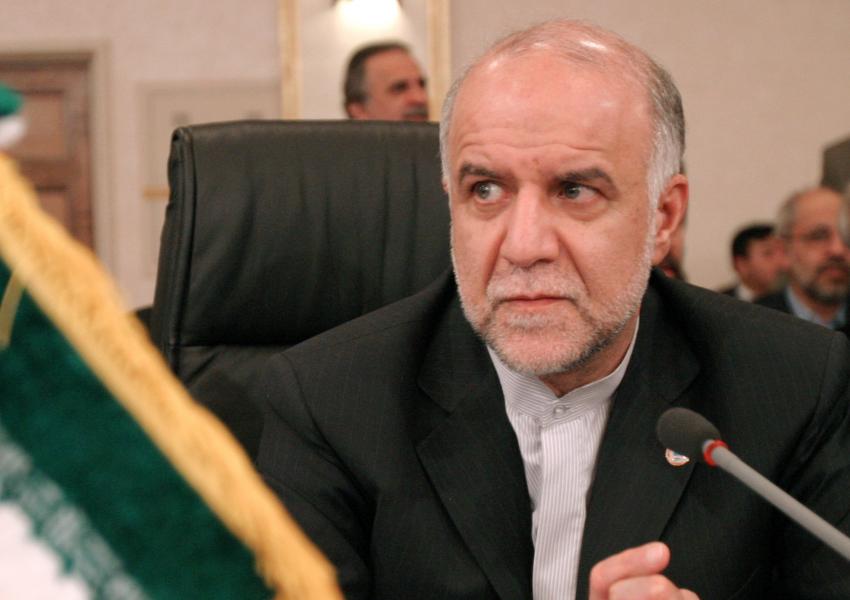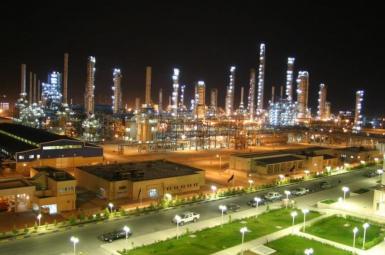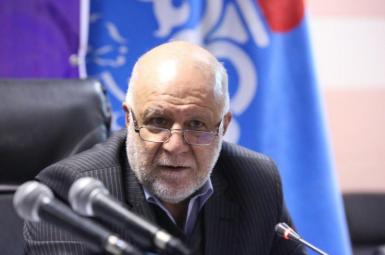
Zanganeh's 'Dream' Of Boosting Iran's Oil Production Seems Unrealistic
Iran’s oil minister Bijan Namdar Zanganeh in an interview told the official IRNA news website Sunday that his biggest dream has always been to increase Iran’s oil output to six million barrels per day and use the income to invest in the country’s development.
Zanganeh, who is participating in the latest OPEC meeting discussing output and prices, has said several times recently that if US sanctions are lifted Iran has the capacity to produce more than six million bpd. Iran produced around 2.4 million bpd in May, which signaled a 400,000-bpd increase over previous months. The country consumes around 1.8 million bpd, which means it was storing and exporting the remaining 600,000 barrels.
Since former US president Donald Trump fully sanctioned Iran’s oil exports in May 2019, Tehran has been able to clandestinely ship a fraction of its more than two million bpd pre-sanction volume.
Over the past four decades Iran has failed to adequately re-invest oil income into its production capacity and Zanganeh’s claim that it could boost production to more than six million bpd sounds excessive. Since the 1979 revolution, the Islamic Republic has never been able to produce more than 4 million bpd.
While Zanganeh says his dream is to see Iran producing 6-million-bpd, he fails to mention that during the monarchy in mid-1970s Iran had already reached that threshold.
Zanganeh in the interview said, “the enmity of foreigners” has prevented Iran from reaching the six-million-barrel mark, but he failed to mention that Iran has remained well behind regional rival Saudi Arabia in the up-keep of its oil industry.
The oil minister claimed in May that if US sanctions were lifted, investments in Iran’s oil sector would double, with foreigners jumping at the opportunity. But the fact is that foreign investors have mostly stayed away Iran’s economy in the four decades since the Islamic Republic was established. In contrast, foreign investments in Saudi Arabia, mostly oil related, totaled more than $170 billion(link is external) from 2006-2012, and continued at the rate of 5-10 billion dollars since. This is in addition to substantial investments by the Saudi government and its oil company, Aramco.
One reason for Iran's failure has been US and international sanctions and restrictions on technology transfers, but that is the result of Tehran’s confrontational policy toward the West. However, a significant portion of the blame also falls on successive governments not investing in the oil industry, or for that matter in the country’s economy overall.
In his interview Zanganeh also says that if US sanctions are lifted Iran can earn two trillion dollars in the next two decades, ensuring its economic development. But this is also a mere wish considering the government’s track record.
Iran has exported well over one trillion dollars of oil in the past 15 years but has very little to show for it in terms of its ability to diversify the economy and reduce dependence on oil. Critics and even some regime insiders say that the huge oil income has disappeared into a “black hole”, leaving the country vulnerable to oil sanctions, with high unemployment and inflation.
Part of the problem is the state-controlled economic model that wastes more than $50 billion a year on subsidies to keep the population docile. Iran has the cheapest gasoline prices in the world and very cheap electricity. If the large subsidies had been curtailed in the past, the country could have re-invested the money in economic development.
A major impediment to investments is the state-control of the economy that has led to inefficiencies and corruption. During the June 18 presidential election, the issue of reforming the economic system was barely mentioned. Instead, there were more populist promises of increasing subsidies.





